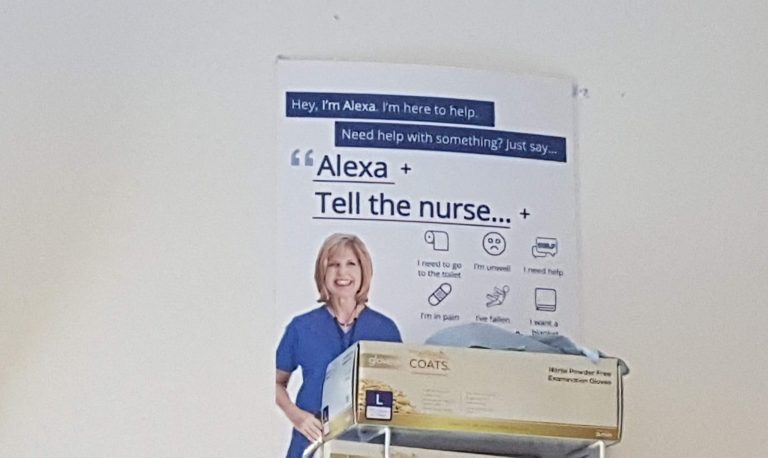Alexa, fix my disability
Last Updated: Mon Jun 20 2022
When I was in the Prince of Wales Spinal Rehab Unit (awesome place by the way, professional staff, great nurses, terrible food) I noticed this sign up in all the rooms.

Above every bed in the ward there was a small Alexa device waiting for patients to ask it for help. You could ask it for the usual Alexa stuff, time, date play a free radio stream and so on. But they also custom commands set up. If you wanted to the nurse, you could either press the nurse call button or you could tell Alexa exactly why you wanted them.
Usage varied. Some people ignored them or asked for them to be turned off (the ward was happy to do so), others were more than happy to use a system which meant that they didn’t have to mash a giant button to call a nurse.
I’m not kidding about the giant button by the way. For people with limited upper body movement, the large buttons were much more practical to use than the normal nurse call system. They looked a bit like this but red.
Anyway, people used the Alexa systems to call the nurses, check the time, listen to radio and a range of different things.
I never really used it myself, upper body motion was fine and I had my own devices to entertain me.
However it did get me thinking about how useful these devices can actually be for people with disabilities. I myself have one setup at home so I can use it to turn out my bedroom light, listen to the radio, play music and so on. As part of a home automation system it can provide a person with a disability an interface to their home that they may not have through a touch system. The potential is great.
However there is an issue with the use of these voice assistants. Privacy. By their nature they are listening devices and they are always listening. What control do we as consumers have over the data they collect? At home they are privy to all conversations near their location, in hospital those conversations will include medical information.
This is a big part of tech and disability. We have to find the right balance between the benefit and the cost. For these voice assistants, the benefit is clear, they offer a relatively easy interface for everyone to access systems and information. The cost (outside of the material cost) is of course something to be determined.
The intersection between big tech and disability is a growing one and one that needs proper oversight, especially from PWD themselves. So part of my job I think is to try and shine a light on it.

